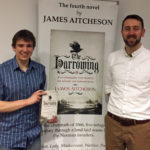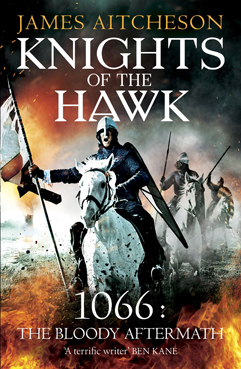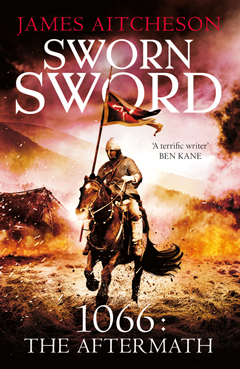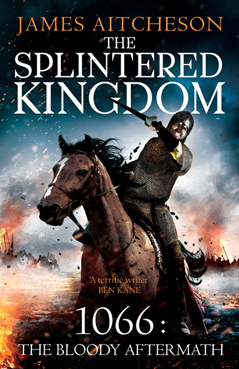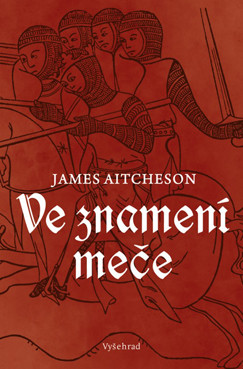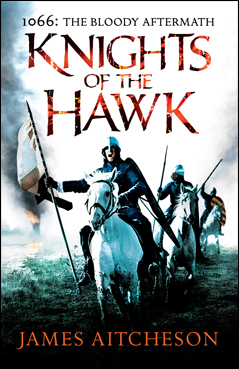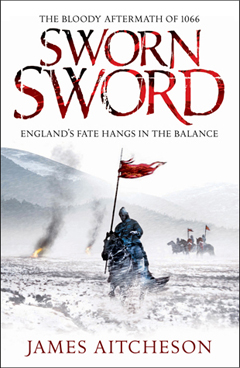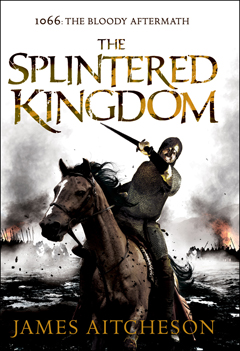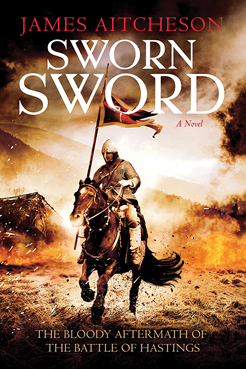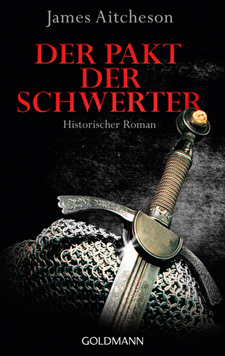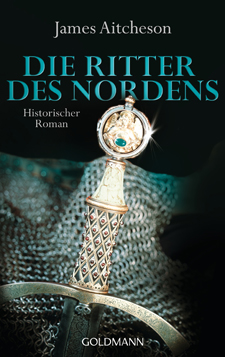As well as visiting bookshops and libraries as part of my book tour, occasionally I’m also invited to speak about my work in universities and schools, and it’s been my pleasure in the last few weeks to present talks and chair workshops at both Swansea University and Huddersfield New College.
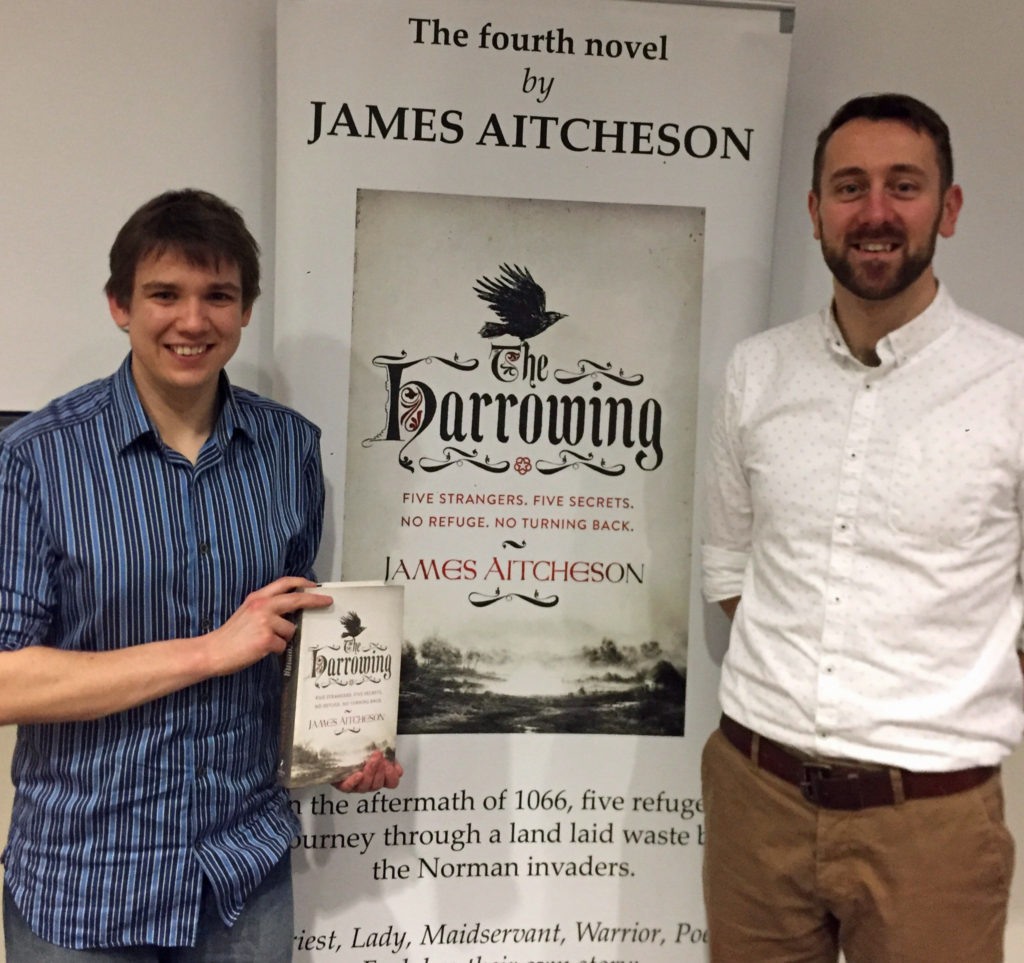
From left to right: myself and Dr Charlie Rozier following my public lecture at Swansea University. Photo credit: Swansea University.
At Swansea I was invited first to co-chair a workshop for medieval history students, looking at primary sources, their value and their limitations. After a short presentation by me, students used extracts relating to the Norman Conquest as inspiration for creative writing – an unusual and in many ways counterintuitive brief to give historians, for whom imaginative interpretation of available evidence doesn’t always come naturally, but an exercise that produced some interesting results.
Later I also gave a public lecture on the process of writing historical fiction, tackling a common question posed by readers, and one that has dominated the debate about the genre for seemingly forever: “Where do you draw the line between fact and fiction?” Drawing upon examples from my own work, I argued that we shouldn’t fixate, as we traditionally have done, on the issue of historical accuracy. Rather, we should celebrate fiction’s potential to understand, interpret and communicate the past in new ways, and I offered some alternative ways of framing the debate regarding the genre.
Both sessions provoked some lively discussion with staff and students, historians and writers alike. I was thrilled to be invited to speak – my thanks to Dr Charlie Rozier (pictured with me, above) for kindly organising the event and making sure the day ran smoothly.
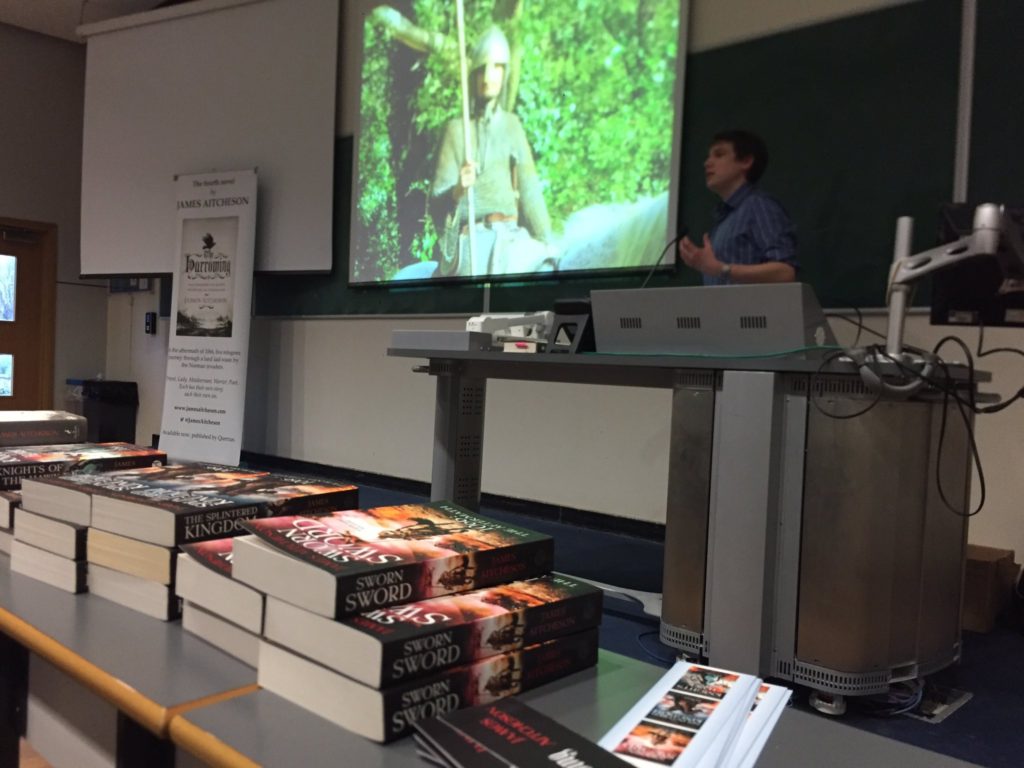
Delivering my public lecture on historical fact and fiction at Swansea University. Photo credit: Charlie Rozier.
The following week I was delighted to return to Huddersfield New College for the third year in a row as their guest author for World Book Day. As well as speaking about the process of researching and writing historical fiction with A-Level medieval and modern history students, I also led a creative workshop based around a series of timed writing challenges designed to free up the imagination and to help writers bypass the internal editor that can sometimes hold them back.
Students were encouraged to write as much or as little as they wanted, without any obligation to share what they’d produced. The challenges varied in difficulty and structuredness, including question-based prompts for generating plots, a picture-based free writing exercise and the ever-popular (and my favourite) “word salad”. I was hugely impressed not just with the energy and enthusiasm the students brought to all of the tasks, but also the range of different responses produced, which often put my own efforts in the shade!
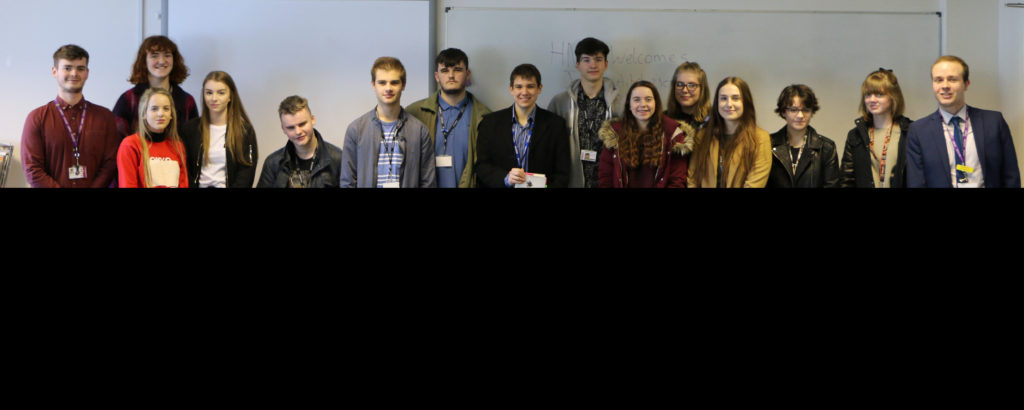
Me (centre, holding The Harrowing) with A-Level students at Huddersfield New College and History course leader Scott Townsend (far right). Photo credit: Huddersfield New College.
Again this year I was given the honour of presenting the certificates at a lunchtime prizegiving ceremony to the winners – chosen by College staff – of the annual short story competition, this year themed upon myths and legends. I also made myself available throughout the afternoon to chat with students about their current writing projects and give advice. It was fantastic to speak to so many keen young writers, and I wish them all the best for their future literary adventures. I’d like to thank Rebecca Hill, the College Librarian, for putting together this year’s event, as well as to Scott Townsend, Sarah Newton and the Principal, Angela Williams, for once more making me feel so welcome.
I’m always happy to visit schools, colleges and universities to speak about my work and to run creative writing sessions. If you’re a teacher, librarian or lecturer and would be interested in hosting a similar event, please do get in touch with me via the Contact page – I’d be glad to discuss some ideas.

